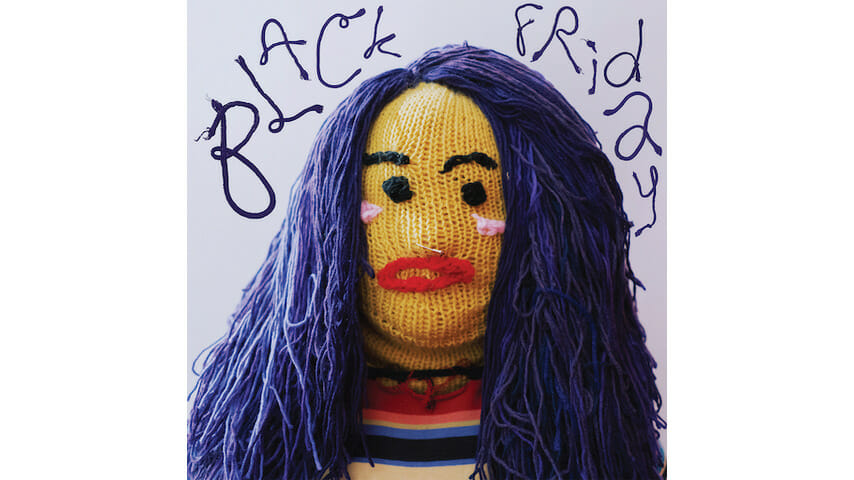Palehound: Black Friday

“And if you quit smoking / Will you just start drinking?” Ellen Kempner sings on “Company,” the opening track of her band Palehound’s third album, Black Friday, setting a tone of curiosity and concern about close friendships that drives the songs to follow. Singing these lines, Kempner doesn’t sound like a narc or a buzzkill, but rather like the friend who’s willing to call you on your BS and then dwell with you in the rejection, shame or embarrassment that self-awareness often produces. Black Friday floats inside these currents of love and risk that churn through relationships—especially platonic ones—which involve serious, prolonged leaning on other people. Throughout, the band explores how we move toward and away from people we care about, and how both orientations strain the resources we have available for love.
Kempner’s considerable prowess on guitar and comfort with emotional ambiguity give shape to feelings that shift constantly and seem impossible to pin down. Compressed into a taut two minutes, “Company” sketches a suburban basement scene (“Your mother gets home late / Your father’s out of state”) that recalls after-school hours spent keeping someone company, with boredom sliding into unexpressed desire (“Your brother’s old drum kit set up in the basement / I’m waiting for the day I get to hear you play”). Around Kempner’s inquisitive voice, synth chords bloom and wilt, giving the song a slightly wobbly tone until Kempner’s electric guitar solo cuts through, bending notes tentatively but building on the vocal melody as though trying to access some loftier level of strength. A sparkling synthesizer gives the song a surprising glam-rock edge, which illuminates more tonal shades in the relationship at its center.
This is how many of Palehound’s songs work: they begin with a highly specific image and then subject it to the probing beam of Kempner’s attention, until a broadly relatable sentiment brightens the image’s dark corners. Her lyrics are both precise and suggestive, not too literal to foreclose complexity but not so esoteric as to become untethered from the recognizable world.
-

-

-

-

-

-

-

-

-

-

-

-

-

-

-

-

-

-

-

-

-

-

-

-

-

-

-

-

-

-

-

-

-

-

-

-

-

-

-

-








































